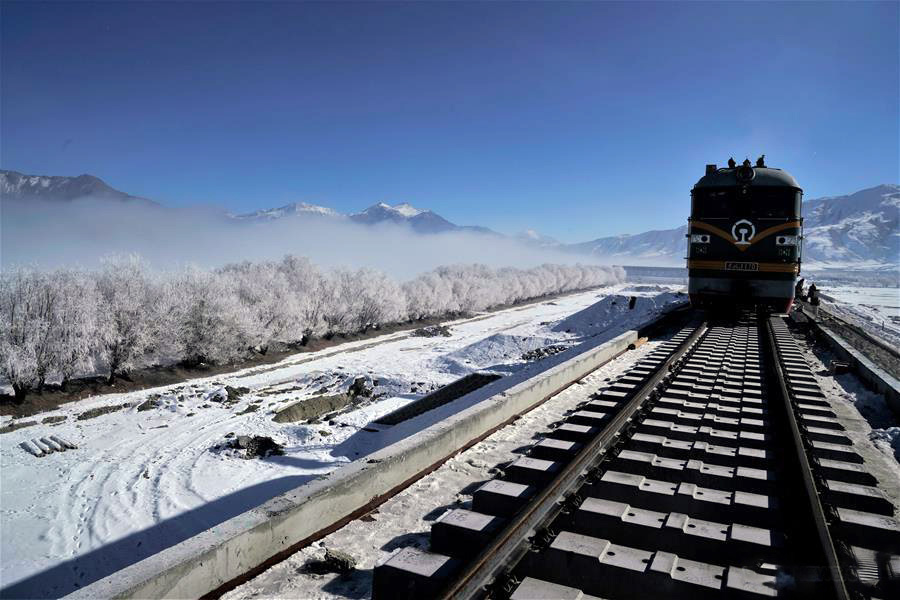
(TibetanReview.net, Mar04’21) – China’s project to build a railway line between Sichuan’s capital Chengdu and Tibet’s capital Lhasa is its biggest construction project, costing 319.8 billion yuan ($49.4 billion), and is meant to tighten Beijing’s grip on the region and tap its abundant natural resources, reported asia.nikkei.com Mar 4. Also, China’s official globaltimes.cn reported Feb 23 that the railway project, which runs close to India’s border, was also a border defence project.
The price tag for this 1,800 km railway project surpasses that of Three Gorges Dam, which cost 250 billion yuan, making the rail line China’s biggest construction project, asia.nikkei.com cited China’s domestic media as saying.
The Tibet-China cross-border section of the railway is slated to start service around 2030, the report said.
“Let’s follow the leadership of President Xi Jinping and mark the 100th anniversary of the People’s Republic of China, and the 70th anniversary of the liberation of Tibet, with an exceptionally outstanding achievement,” Qi Zhala, the chairman of the Tibet Autonomous Region (TAR) government, was quoted as having said during the January session of the regional people’s congress.
Qi Zhala was stated to have laid out a medium- to long-term plan starting this year that called for accelerating infrastructure building under the banners of ensuring national security and raising the quality of life of the people. This was stated to be in keeping with Xi’s statement during the groundbreaking ceremony of the rail project in Nov 2020.
“The railway project has great significance to maintaining national unity, promoting ethnic unity and consolidating stability in border areas,” Xi had said at the time.
The project is stated to be mentioned in China’s five-year plan through 2025 and its long-term goals through 2035.
The officially stated aim of building this costliest of China’s projects is to boost tourism and business travel to TAR. The goal is state to be to promote economic development to weed out public discontent, which led to the ethnic unrest in 2008.
Beijing is also eager to get its hand on the region’s resources, such as copper and lithium, the report noted.
The report cited local media as saying the TAR was the leader among provinces in terms of copper deposits while being a major a producer of lithium, a key component in electric vehicle batteries, zinc, chromite and beryllium, a rare metal.
Several Chinese enterprises were stated to have arrived in Tibet for resource development. For example, Baowu Steel Group, a state-owned enterprise, has decided to purchase about half of Tibet Mineral Development, an outfit that runs chromite, copper and lithium developments. Zijin Mining Group was reported to have taken controlling stake of Tibet Julong Copper.
“An abundance of resources lies in Tibet, and we will develop the resources so that we won’t become dependent on overseas supplies,” a senior government official was quoted as saying.





